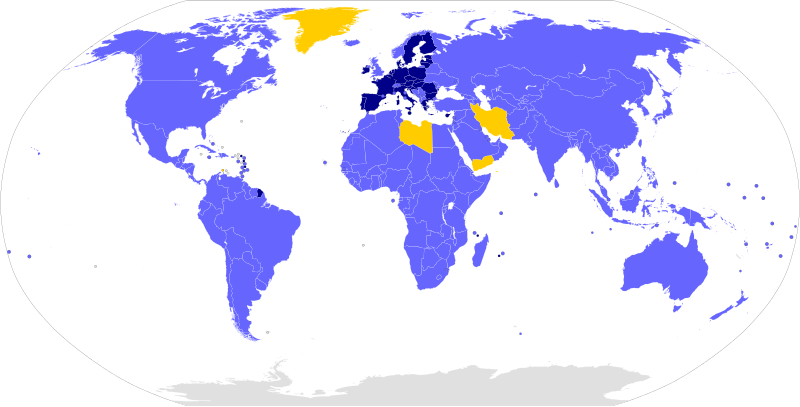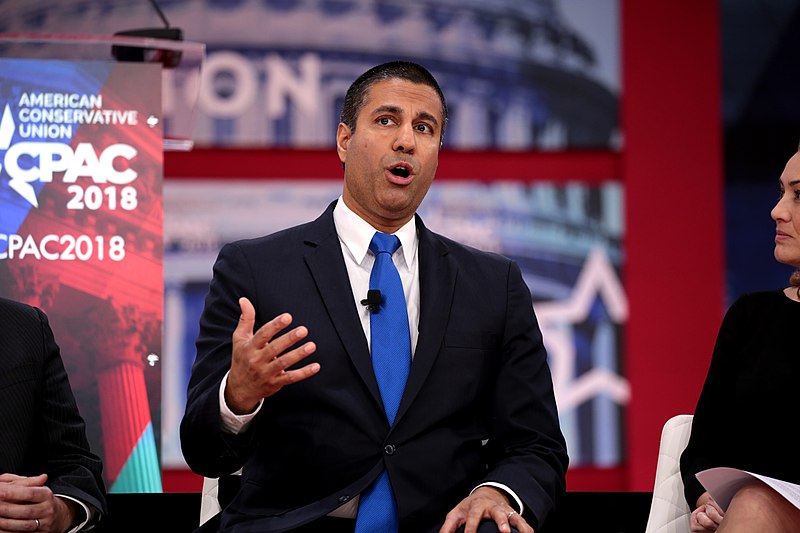Mandate 2016 - What did Trump Get Done Last Time he was in Office?
On the Heritage foundation’s website, they boast about how the Trump Administration embraces Heritage Foundation Policy Recommendations from Mandate 2016. What exactly did Trump get done that was straight out of the mandate's playbook?
Download the Mandate 2016 Documents Here:
Leaving the Paris Climate Accord
In August 2017, Trump announced the U.S. was ending its funding and membership in the Paris Agreement on Climate Change.
Summary:
Under the agreement, the U.S. had previously submitted a Nationally Determined Contribution (NDC) in which we committed to reducing the country’s greenhouse gas emissions by 26-28% below 2005 levels by 2025. In his announcement, Trump stated that “as of today, the United States will cease all implementation of the Paris Agreement” including the NDC and contributions to the Green Climate Fund
In 2021, The United States rejoined the Paris Agreement on Biden’s first day in office
Heritage Foundation Link:
Article:

Mandate 2016:
Repealing Net Neutrality
In December 2017, Trump’s Federal Communications Commission chairman proposed ending the 2015 network neutrality rules. Net neutrality refers to the principle that internet service providers should enable access to all content and applications regardless of the source, and without favoring or blocking particular products or websites.
Summary:
On April 25, 2024, the FCC commission voted to reinstate open internet rules adopted in 2015
After President Donald Trump’s Federal Communications Commission (FCC) rolled back the Obama-era net neutrality rules in 2017, internet service providers (ISPs) gained free reign to slow down certain websites and to censor online content. While ISPs have generally been well-behaved since the repeal, the lack of regulation leaves the Internet vulnerable. Americans must mount a bipartisan effort to reinstate net neutrality, ensuring equality of access and the right to Free Speech.
At its most basic, net neutrality is the term given to laws that ensure ISPs––such as Verizon, AT&T, and Comcast––treat all Internet communications equally. In practice, the rules have two major implications. First, they dictate that ISPs cannot charge higher rates in exchange for faster speeds. Second, they prevent ISPs from censoring certain websites, which in turn guarantees that ISPs’ politics do not affect online search results. In 2015, as part of its Open Internet Order, the Obama administration passed this version of net neutrality. Tech leaders celebrated the move. FCC Chairman Tom Wheeler called it a decisive win for Free Speech, stating that “no one — whether government or corporate — should control free open access to the Internet.”
When the Republican-led FCC repealed these net neutrality rules in December 2017, Ajit Pai, the FCC’s then newly selected chair, lauded the move, saying deregulation would spark creativity. He called the internet “the greatest free-market innovation in history.” And when describing the internet’s inception, Pai claimed that private entrepreneurs –– and certainly not “heavy-handed government regulation” –– are to thank for its success.
Biden fired Ajit Pai when he took office.

Gage Skidmore from Peoria, AZ, United States of America, CC BY-SA 2.0 <https://creativecommons.org/licenses/by-sa/2.0>, via Wikimedia Commons
Past Issues with Internet Service Providers
In 2007, Verizon Wireless cut off access to a text messaging program directed by Naral Pro-Choice America (now Reproductive Freedom for All), an abortion rights group. When pressed about the issue, Verizon claimed that it would block any “content that, in its discretion, may be seen as controversial or unsavory to any of [its] users.” It was only after a public outcry that Verizon reversed its decision. The 2007 Verizon-Naral controversy shows that when an ISP finds it politically expedient, it can simply choose which websites or programs to block altogether.
Similarly, the same year, AT&T censored the band Pearl Jam when they criticized George Bush during their performance at Lollapalooza. Playing a cover of Pink Floyd’s “Another Brick in the Wall,” the band sang “George Bush, leave this world alone… George Bush, find yourself another home.” During a webcast of the band’s performance, AT&T monitors cut the two lines. After facing criticism from free speech activists, AT&T publicly apologized, vowing to improve. Though more than a decade old, these events highlight ISP censorship before the Obama-era net neutrality laws. Without these regulations, further violations become virtually inevitable.
Mandate 2016:
Reshaping National Monuments
Heritage’s recommendation to prohibit Land Acquisition (Cap and Reduce the Size of the Federal Estate) was adopted by Trump when he issued two executive orders effectively shrinking the size of national monuments in Utah.
Summary:
The Trump administration announced a dramatic reduction in size of both Bears Ears and Grand Staircase-Escalante National Monuments. The blowback from supporters of National Monument protection was swift, and fierce.
Patagonia’s response was the most prominent, as they ran a simple, yet forceful digital ad proclaiming “The President Stole Your Land” in bold white letters on a black background
H.R. 4558 Created a “Management Council” that would determine the management plan for all lands
- In effect, this bill hands complete control of these lands to the State of Utah while all Americans fund the operating costs. That’s right, roughly 12,000 people in Garfield and Kane Counties will decide how these lands are managed, what is allowed and not allowed, while 330 million Americans pay for their decisions. To add insult to injury, the bill requires the Federal Government to transfer ownership of Hole in the Rock road to the State of Utah for FREE.
- This opens the door to a lot of potential harm on these lands – more oil and gas development? More mining, grazing and logging? More fences, shutting off hiking, climbing, fishing and hunting access? It’s all up for grabs.
- Here is a video showing Leland Pollock, the Garfield County Commissioner who wants to run Utah’s next National Park
In 2021, Biden restored these national monuments, which was obviously opposed by Republican lawmakers.

John Fowler from Placitas, NM, USA, CC BY 2.0 <https://creativecommons.org/licenses/by/2.0>, via Wikimedia Commons

An advertisement from He Gets Us, a campaign promoting the forgiving nature of Jesus, showing an oil executive washing the feet of a Native American woman.
Mandate 2016:
Reinstating the Mexico City Policy
This executive order prevents taxpayer money from funding international groups involved in abortion and ending funding to the United Nations Population fund. On Jan. 23, 2017, in his first pro-life action, Trump signed an executive order today reinstating the Mexico City Policy.
Summary:
The Mexico City Policy announced by President Reagan in 1984 required nongovernmental organizations to agree as a condition of their receipt of Federal funds that such organizations would neither perform nor actively promote abortion as a method of family planning in other nations. This policy was in effect until it was rescinded on January 22, 1993 (Bill Clinton’s third day in office).
An amendment introduced by Sen. Jeanne Shaheen D-N.H., would have provided $665 million in federal funding for "family planning and reproductive health care" to pro-abortion organizations around the world. At the same time, it would have hindered the Trump administration’s efforts to expand USAID funding to pro-life and faith-based groups, including faith-based charity agencies that hold to a traditional, biblical view of marriage.
Heritage Foundation Link:
Article:
Mandate 2016:
Increasing Military Spending
Trump’s budget calls for a $54 billion increase in military spending to improve capacity, capability, and readiness of America’s armed forces.
Summary:
The White House unveiled its proposed budget for Fiscal Year 2020 and, to the apparent surprise of some military planners, the White House is calling for a top line national defense budget of $750 billion. Pentagon officials had reportedly anticipated a budget of $733 billion, which would have been a 2.4 percent increase over last year’s. They got a 4.7 percent increase instead. According to the supporting documentation, the request is intended to provide the Department of Defense with the resources to “remain the preeminent military power in the world, ensure balances of power in key regions remain in America’s favor, and advance an international order that is the most conducive to U.S. security and prosperity.”
Since becoming president, Donald Trump has overseen historic increases in defense budgets, fawned over military equipment, installed a number of defense industry insiders in top Pentagon positions and made a major push to sell weapons overseas.
Yet Trump’s record tells a different story. All three of his hand-picked defense secretaries had ties to the defense industry: Jim Mattis was a member of the General Dynamics board of directors, Pat Shanahan was an executive with Boeing, and Mark Esper was Raytheon’s top lobbyist. Mattis also returned to his board position shortly after leaving the Pentagon, showing the revolving door between industry and the Defense Department.
Mandate 2016:
Reforming Temporary Assistance for Needy Families (TANF)
The Trump administration adopted and is in favor of strengthening existing work requirements in order to receive benefits
Summary:
In his new budget, President Trump proposes to cut Temporary Assistance for Needy Families (TANF) by $21 billion over ten years. The cuts include a 10 percent reduction in the annual block grant funding for states and an end to the $608 million TANF Contingency Fund, which gives states additional funds at times of economic distress. Among its programmatic changes to TANF, the budget proposes:
A rigid “universal engagement” requirement that all parents participate in work activities for at least 20 hours. While universal engagement plans claim to take into account the unique circumstances of families, a rigid hour minimum is inconsistent with the individualized approach that they purport to foster. Under universal engagement, all families, including those facing an immediate crisis or with a medical or mental health issue, would be at risk of losing their cash assistance if they don’t meet the minimum requirement. The proposal doesn’t provide any detail on the types of activities in which parents must participate but, if proposals from other Republican policymakers are any indication, it would favor immediate work over education, training, and family stabilization.
A shift to employment outcome measures and away from the current official measure of TANF’s performance, the Work Participation Rate. The budget proposes measuring the number of TANF recipients who take a job, those who are still employed two quarters later, and their earnings. While such measures could help us better understand how well TANF gets and keeps people in jobs, they lack a way to determine how many families in need TANF actually serves in the first place. Without that, states could improve their performance on employment targets by keeping the families facing the biggest barriers to work out of the program entirely.
Heritage Foundation Link:
Article:
Mandate 2016:
Allowing Development of Natural Resources on Federal Land
The Trump administration opened off-shore drilling and on federal lands. Executive Order 13783 directed Interior Secretary Ryan Zinke to commence federal land coal leasing activities.
Summary:
President Donald Trump’s executive order seeking to find new ocean expanses in the Atlantic and the Arctic for offshore drilling isn’t likely to reach its goals anytime soon, but instead will kick off a yearslong review and legal battle
“This executive order starts the process of opening offshore areas to job-creating energy exploration,” he said. “It reverses the previous administration’s Arctic leasing ban and directs Interior Secretary Ryan Zinke to allow responsible development of off-shore areas that will bring revenue to our treasury and jobs to our workers.”
Despite Trump’s assertion that the nation needs to wean itself of foreign oil, U.S. oil imports have declined in recent years as domestic production boomed amid improved drilling techniques opening up once unreachable areas.
Heritage Foundation Link:
Article:
Mandate 2016:
Withdraw from UNESCO
In October 2017, Trump announced he was putting an end to U.S. membership in the United Nations Education, Scientific and Cultural Organization (UNESCO).
Summary:
According to UNESCO’s website, this is their vision: “Since wars begin in the minds of men and women, it is in the minds of men and women that peace must be built. UNESCO uses education, science, culture, communication and information to foster mutual understanding and respect for our planet. We work to strengthen the intellectual and moral solidarity of humankind and bring out the best in our shared humanity.”
In late 2017, the State Department announced it would leave UNESCO the following year over a perceived anti-Israel bias, financial woes and other concerns. Nikki Haley, who was the U.S. ambassador to the UN at the time, praised UNESCO's purpose but claimed the group's "extreme politicization has become a chronic embarrassment."





